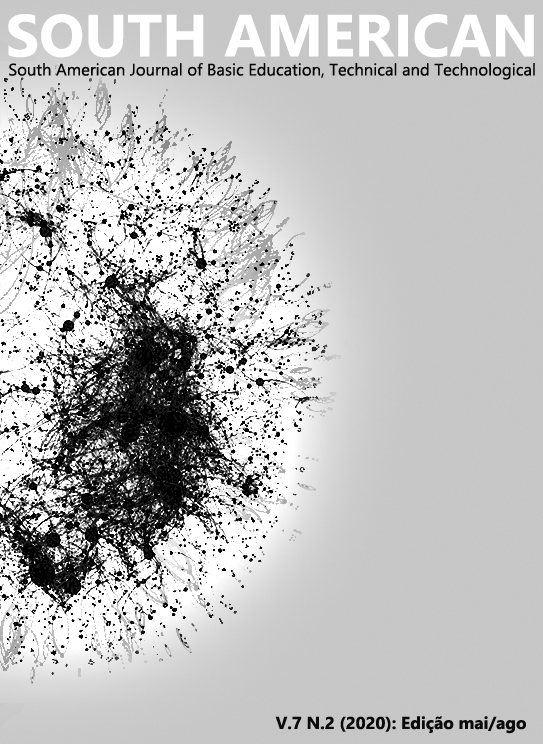TEACHING SCIENCES WITH PLANTS USED BY A COMMUNITY THAT LIVES IN THE FOREST
Keywords:
conhecimento tradicional; ensino; biologia.Abstract
This article reports the motivation and the steps for the elaboration of an educational product that was elaborated during the research developed from the Master Program in Science and Mathematics Education offered by the Federal University of Acre - UFAC, with the Rio Branco community that occupies the Seringal forest of Resex Chico Mendes, located in the municipality of Xapuri / AC. The research came from the interest in knowing the plant diversity present in the traditional community and thus proposing to teach the scientific knowledge about this subject in close relation with the knowledge of the community, thus allowing the dialogue of knowledge. The exchange of knowledge occurred through the experience of the community with the vegetables and the description of events that occur in the daily life of a group. With this contact it was possible to teach science at the Rural School Union, frequented by residents of Resex. For this purpose, a teaching plan was elaborated in a dialogical way in which it was adequate to attend to the demands and needs of the students in order to contribute with the process of teaching and learning. The execution of the teaching plan allowed the class to be carried out with the involvement and participation of the students under the problematizing perspective, working in a contextualized way with the traditional knowledge about the vegetables. Thus, the final teaching plan titled "Learning with the Plants of the day to day" has a training character in order to contribute as a pedagogical tool for teachers to teach plant biology in a contextualized way and in approximation with the knowledge of the populations of the Forest.
Downloads
References
BAPTISTA, G. C. S. Importância da demarcação de saberes no ensino de ciências para sociedades tradicionais. Ciência e Educação, v. 16, n. 3, p. 679-694, 2010.
POMEROY, D. Science Education and Cultural Diversity: mapping the field. Studies in Science Education, 1994, p. 49-73.
MOREIRA, M. A.; ROSA, P. R. S. Pesquisa em Ensino: Métodos Qualitativos e Quantitativos. Porto Alegre: Editora da UFRGS, 2009.
SILVEIRA, A. P.; FARIAS, C. C. Estudo Etnobotânico da Educação Básica. Poiésis Revista do Programa de Pós Graduação em Educação, Tubarão, v. 2, n. 1, p. 14-31, jan/jun. 2009.
DELIZOICOV, D. Ensino de Ciências: Fundamentos e Métodos. São Paulo: Cortez Editora, 2011.
CASTRO, P. A. P. P; TUNCUNDUVA, C. C.; ARNS, E. M. A importância do planejamento das aulas para organização do trabalho do professor em sua prática docente. Athena: Revista Cientifica de Educação, v. 10, n. 10, jan-jun. 2008.
PATZLAFF, R. G.; PEIXOTO, A. L. A pesquisa em etnobotânica e o retorno do conhecimento sistematizado à comunidade: um assunto complexo. História, Ciências, Saúde, Manguinhos, Rio de Janeiro, v. 16, n. 1, p. 237-246, jan-mar. 2009
FREIRE, P.; SHOR, I. Medo e Ousadia. Rio de Janeiro: Paz e Terra, 1986.
FREIRE, P. Pedagogia do Oprimido: saberes necessários a prática educativa. 54ª ed., Rio de Janeiro: Paz e Terra, 2013.
BORDENAVE, J. D.; PEREIRA, A. M. Estratégias de ensino-aprendizagem. Petrópolis: Vozes, 2012.
DELIZOICOV, D.; ANGOTTI, J. A. Metodologia do Ensino de Ciências. São Paulo: Cortez, 2000.
Downloads
Published
Versions
- 2021-08-31 (2)
- 2020-07-28 (1)










